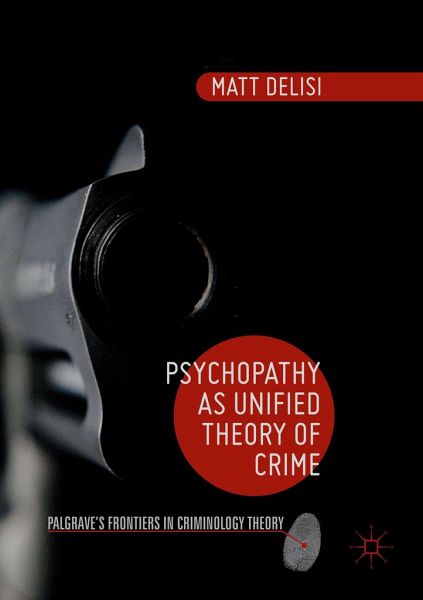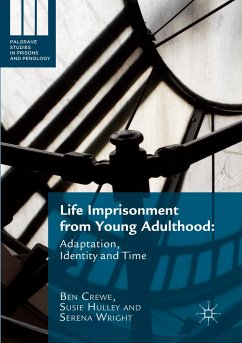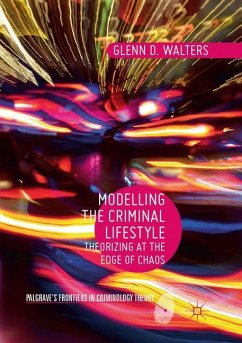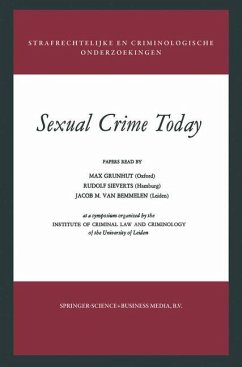
Psychopathy as Unified Theory of Crime
Versandkostenfrei!
Versandfertig in 6-10 Tagen
68,99 €
inkl. MwSt.
Weitere Ausgaben:

PAYBACK Punkte
34 °P sammeln!
This book applies the psychopathy concept toward the understanding of crime. Drawing on hundreds of studies and his own clinical, research, and practitioner experience working with the most antisocial and violent offenders, the author demonstrates that psychopathy can explain all forms of crime across the life course, and also examines the biosocial foundations of the disorder. With an abundance of case studies and historical references, written in a distinctive writing style, the book is equally fascinating to the academic scholar and the true crime buff alike.












